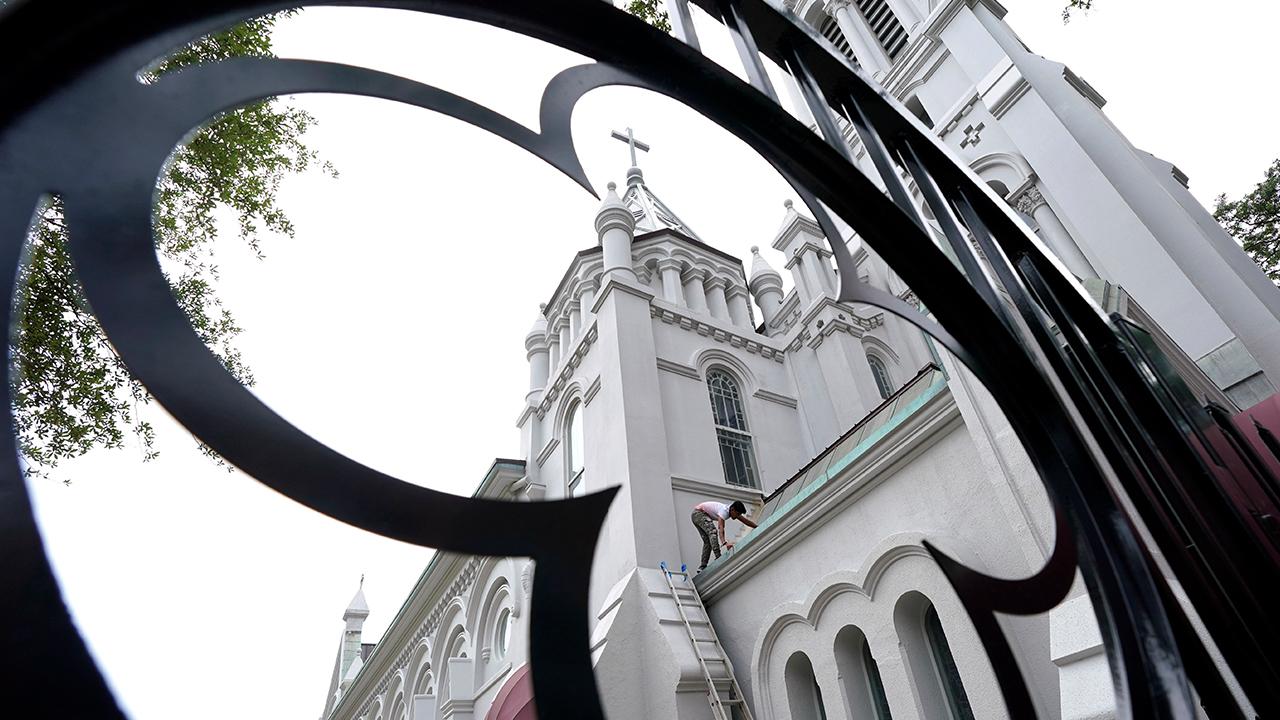Easter 2020 and coronavirus -- Why I'm betting on a very bullish Easter
History shows us that the more intense the pressure, the more the church grows
Get all the latest news on coronavirus and more delivered daily to your inbox. Sign up here.
In the middle of a bear markets and predictions of a deep recession, I am still betting on the most bullish Easter ever.
Why?
Because history shows us that the more intense the pressure, the more the church grows. When disruptions and pressure hit businesses, they have to furlough, layoff or even close. But the history of the church shows us that disruptions produce innovations, and pressure actually produces growth. That’s why I believe the church is poised for the biggest Easter on record.
CORONAVIRUS UNEMPLOYMENT COULD HIT POST-DEPRESSION RECORD, ECONOMISTS SAY
As early as 64 AD, less than 40 years after Jesus’ crucifixion, Emperor Nero declared war on the church, burning Christians at the stake and using them as lanterns for his dinner parties.
The result?
Paul kept planting congregations, and the church grew like never before.
Hundreds of years later, Emperor Diocletian decided to end Christianity with a series of edicts in 303 AD.
The result?
Within a decade, Constantine had adopted the faith and had made it the state religion of the empire.
CARES ACT WILL BLUNT CORONAVIRUS-INFLICTED ECONOMIC PAIN, STUDY FINDS
In modern times, the same holds true. For years, the “underground church” has not been able to meet in China publicly. As recently as last Christmas, The Los Angeles Times reported that those seeking to keep the church from meeting in that country were having no luck, finding that their efforts were only spurring the Protestant Christian church to become the fastest-growing religion in the country.
Arguably, the coronavirus pandemic is the biggest threat ever to the church gathering. And, as it has done so many times in history, the church is pivoting in the crisis and is rising to the challenge in wonderful ways. At Vanderbloemen, the company I lead as CEO, we work with thousands of churches of all shapes and sizes and are hearing amazing stories of churches rising to the occasion.
In the epicenter of the virus, Tim Lucas (pastor and founder of Liquid Church in cities surrounding NYC) is transforming an Easter tradition from handing out candy to handing out tangible, useful hope.
He says: “Here in New Jersey, we want to spread hope faster than COVID-19 is spreading. That’s why we’ve created emergency relief kits in the form of Easter Baskets. Traditional Easter baskets would be filled with chocolate bunnies and jellybeans, but our baskets are packed with crucial essentials — toilet paper, disinfecting wipes, non-perishable food, and relief supplies that can help families impacted by this crisis.”

For the last 15 years, Craig Groeschel, senior pastor of LifeChurch (the largest church in America), has been at the forefront of developing online church services. They give away their platform to any church that wants it — completely free of charge.
The result?
The number of churches using the platform has grown geometrically in the last month. By many counts, the number of people coming to faith through their online platform is literally outpacing the number of people dying from coronavirus.
GET FOX BUSINESS ON THE GO BY CLICKING HERE
Jud Wilhite is the lead pastor of Central Christian Church, the largest church in Las Vegas, a city that arguably needs hope more than a typical U.S. city. I asked him how moving to online is affecting attendance and engagement. He tells me they are exploding. While about 50,000 people attended Easter services on campus last year, he said to me that he “hopes and prays that they reach over 1 million people through Easter services this year.” No pun intended, but Jud isn’t a betting man. I’m guessing he’s right.
One of the most entrepreneurial churches in the country is the Church of the Highlands, in Alabama. Their in-person worship services are growing like crazy, with sites throughout the state. While they have made the move to online-only during the virus, their pastor, Chris Hodges, told me, “I don’t have anything genius to say, but I know we will be speaking to more people this Sunday than we ever have before.”
It’s not just the newer churches that are adapting. We are members of a rather traditional Methodist church. We have been “going to church” online in our family room for a few weeks now, and the attendance has been really good. Last week, we had more in attendance at the 11 a.m. service than our sanctuary could have physically held. My kids have been doing their Wednesday night Bible studies and are fairly connected to their friends through it.
Richard Kannwischer, the senior pastor of the historic Peachtree Presbyterian Church (the largest Presbyterian Church (USA)), tells me, “We’re already experiencing Easter-level attendance through online participation each week. While recognizing it’s not the same thing as being together in person, the community’s response has been so encouraging.”
The innovations aren’t just online. Resurrecting an innovation from the late Robert Schuller, drive-in theaters are booked solid for this weekend. Churches around the country are taking turns each hour renting the facilities, allowing members to “attend” together while staying in their cars and safely away from contacting others. They’re telling their members to invite friends who have never been to church, with one I noticed using the pitch: “Come as you are, just stay in your car!”
Why the massive response to church services that aren’t what we are used to? My pastor, Tom Pace of St. Luke’s United Methodist, texted me, “People read the news, and what they see is bad news: numbers increasing, doctors and nurses worried about resources, the economy tanking. They are hungry for some hope, even if they have to find it in a streamed worship experience. Easter is all about hope. The church has what folks are looking for.”
Eventually, the church will be able to congregate again, and that will be amazing. The internet isn’t as good as gathering together, and online won’t replace houses of worship. But for now, in this crisis, the church is pivoting, people are responding, and unlike businesses that are folding, the church is preparing for the biggest Easter celebration ever.
William Vanderbloemen is the CEO of Vanderbloemen, which serves teams with a greater purpose by aligning their people solutions for growth: hiring, compensation, succession and culture. Through its retained executive search and consulting services, Vanderbloemen serves churches, schools, nonprofits, family offices, and Christian businesses in all parts of the United States and internationally. Follow him on Twitter @wvanderbloemen.




















